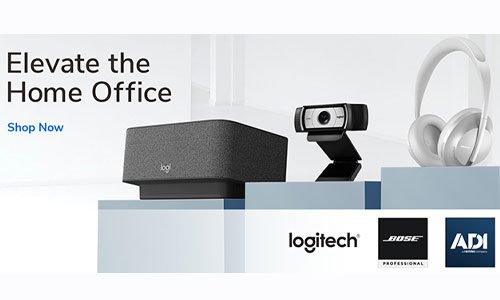As hybrid work continues to be the norm for many, residential AV technology is needed to help at-home workers collaborate, complete tasks as if in the office and work at a high level every day.
First and foremost, working from home is not possible without a reliable and stable Wi-Fi connection. Use access points, Wi-Fi extenders or mesh network solutions to enable remote employees to work anywhere in their home or even in an attached garage, for example. Plus, reliable upload and download speeds are critical for successful virtual meetings and are wholly dependent on a solid Wi-Fi connection.
Conferencing solutions that integrate with Teams, Zoom or other virtual meeting applications are also a must have today. Equip customers with high-quality conferencing tools, like external webcams, noise-canceling headphones and mics, and they’ll be able to seamlessly collaborate with other employees, deliver first-rate presentations and block out background noise.
Preventing data loss and safeguarding an organization’s technology investment is always smart business, especially in private residences where the power infrastructure can be more uncertain and harder to manage than it might typically be in a traditional office. That’s why it’s important to protect home-based equipment from power surges. By utilizing surge protectors and UPS products, you can safeguard home workers’ business-critical equipment and data.
One obvious consequence of the work-from-home revolution is that workers will spend more time in their residences, which means they’ll be focused on factors such as climate control, power consumption and even what’s going on at their front door. With video doorbells, smart lighting, smart thermostats and related solutions, it’s easy to help home workers an environment that aligns with their needs and expectations.
By providing and installing the right at-home technology for remote workers, you can provide a functional working environment that promotes productivity and efficiency.


















